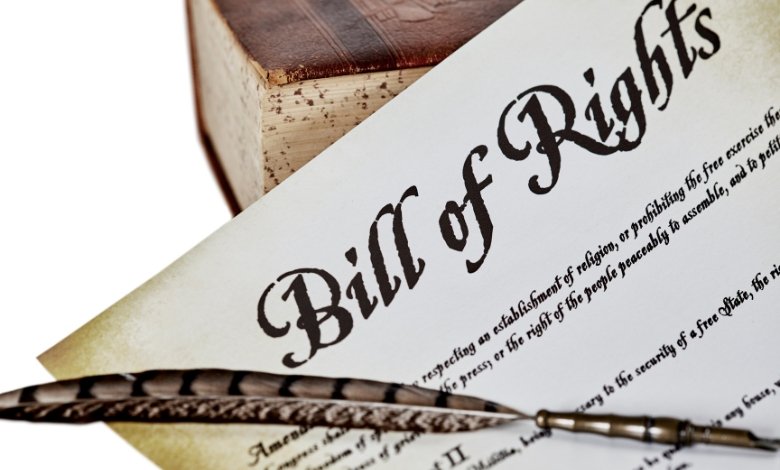Learn the key facts about common law marriage in Florida, including its legality, history, and rights for long-term cohabiting couples.
It never fails to surprise me how much the law in Florida is so much different from up home. Most folks at home had a good idea about common law marriage. If you lived with someone for a certain number of years, you were basically considered married in the eyes of the law. But as I started to get used to the life in the Sunshine State, I knew things were done differently here. A friend of mine who had been living with her partner for almost ten years referred to him casually as her “common law husband,” which got me thinking: is common law marriage legal in Florida? And if not, what does that mean for couples who’ve been together for years?
In this article, I’m going to uncover some interesting, kind of shocking facts on common law marriage in Florida. If you’re in a long-term relationship and happen to live in the state of Florida—or not—and are interested in ways that all of this works, this is your article. We shall go into the ins and outs of common law marriage in FL. Let’s break things down right away.
Table of Contents
Understanding Common Law in Florida: Key Legal Insights
What, then, is common law marriage? In a nutshell, common law marriage is such a kind of informal marriage that gets legally recognized after the couple lives together for a certain period and holds themselves out in public as being married, even when they never officially got married either in a courthouse or under some sort of ceremony. The concept itself dates back centuries and was professionally utilitarian in times and places where access to formal marriage ceremonies was limited.
However, over the years, things have changed in the world of the judiciary, and today not every state recognizes common law marriage. This raises a question that: Does Florida recognize common law marriage?
The Historical backdrop of Common Law Marriage in Florida
This is where things get somewhat really fascinating. Florida and common law marriage have a rather tenuous history. The state once did recognize common law marriages. The state, in the year 1968, finally abolished common law marriage altogether. Since that time, common law marriage within the state of Florida has not been legally recognized.
So, now that you are living with your partner in the state and wonder if you are going to be considered married just because you are together that long, the answer is no because common-law marriage is not an option in FL.
But, here is the kicker: if you entered into a valid common law marriage in another state which recognizes it prior to moving to Florida, then that state would recognize your marriage. This is due to the Full Faith and Credit Clause, U.S. Constitution, through which states are required to recognize public acts, records, and judicial proceedings of every other state. So, if you’re from a state which recognizes common law marriage and then move to Florida, your marriage will still be valid.
Common law in Florida : Brief Overview

The question often arises as to whether or not common law marriage is legal in Florida, and precisely what the law maintains. Because the common law marriage was abolished in Florida many decades ago, no matter how long you live with your partner, you won’t be considered married unless you go through a formal wedding ceremony and obtain a marriage license.
How About All the Couples That Have Retired in Florida?
As I’ve said, if you legally entered into a common law marriage in another state allowing such marriages, Florida and common law marriage laws have no bearing on your status. Your marriage will still be valid in Florida. However, if you two only started living together in Florida after 1968 with the belief that you would eventually be considered married under common law, you’re out of luck. It’s here that the state will not recognize such unions.
For couples who have been together for many years and who have built lives together, this may be an unfair pill to swallow. It is, however, important to note that Florida common law marriage laws spell this out clearly. Without a marriage, you do not have the same legal rights and protections accorded married couples.
The Importance of Legal Alternatives
Since common marriage law does not afford any rights or protections in Florida to long-term cohabiting couples, it is important to consider other legal options: for example, taking specific legal steps so both you and your partner can have rights afforded to married couples, such as medical decision-making and property inheritance. These might be on the zone of will preparation, durable powers of attorney establishment, and health directive establishment. Without these legal documents, there is a possibility that your partner is not entitled to any legal right over the issues with respect to your medical and financial.
Is There Common Law Marriage in Florida? A Comprehensive Guide
One of the most frequent questions I’ve encountered, both in my personal circles and online, is does Florida have common law marriage and how many years a couple needs to live together to be considered married under this law. The short answer, as we’ve covered, is no—common law marriage in Florida simply doesn’t exist anymore, regardless of how long a couple has been together. Be that as it may, we should separate it a touch more.
Common Law Marriage in Florida How Many Years
Some people believe that after cohabiting for some years, an individual automatically becomes a common-law spouse. This may actually be true in states which still recognize common law marriage. However, Florida does not recognize common law marriage under any circumstances, no matter how many years you live together. The state’s position, whether it be five years, ten years, or fifty years, has been clear: Is Common Law Marriage Legal in Florida? No, it is not.
The Effect on Long-Term Relationships
This can have serious consequences for couples staying together as long-term partners without ever having married. For instance, if one of the partners died and did not have a will, then the other partner has no automatic right to inherit in the estate of his or her partner.
Similarly, if the relationship ends, the partner who might have been considered a common law wife in Florida under a different state’s laws has no legal right to alimony or a share of the couple’s assets.
Is Florida a Common Law State? Let Me Check the Facts
Florida not being a common law state in marriage, it arises that with all the complications present in common law marriage in Florida, is Florida a common law state more generally? No, Florida is not a common law state in marriage, but that does not mean that there are no certain applications or principles of common law in other areas of law.
Common Law in Other Areas of Florida Law
Although common law marriage is no longer recognized on the books, common law principles nonetheless do play a role in many other aspects of the legal underpinnings set forth in the state of Florida. For example, common law state of Florida principles may come into play within contract disputes where statutory law doesn’t readily clearly guide in whether or not a contract has been formed between parties, property rights regarding ownership in land and tort cases. In contrast, Florida utilizes solely a law of statute concerning marriage, wherein to be legally recognized as being married, a legal marriage is required and a license for such must be obtained.
The Role of Legal Precedent
Like most states, the legal system in Florida is a blend of statute and precedent. And while common law marriage in Florida is invalid, former case law can sometimes inform how laws are both interpreted and applied from case to case. The state statutes are clear where marriage is concerned: if individuals want the legal privileges marriage commands, they must indeed get married.
Rights of a Common Law Wife in Florida: Legal Considerations

Now, let’s talk about the rights of a common law wife in Florida. As mentioned, because it’s common law marriage is legal in Florida or not is a question that often comes up, it’s important to take a look at what rights, if any, a partner in a long-term relationship might have.
Legal Rights Without Formal Marriage
If you happen to be involved in a long-term relationship in Florida but have not experienced a formal marriage, then your legal rights are restricted. How so: does Florida have common law marriage? No, it does not. In addition, separation for you is not going to involve the same rights in seeking alimony or a share in property that was gained during this relationship.
If your partner passes away, you have no automatic right to inheritance of their property or to make selections concerning their medical care.
Protecting Yourself Legally
As common law Florida marriage laws are so limited, it’s essential to take measures to protect yourself legally if you’re in a long-term relationship in the state. You can do this by:
So, with these steps, not only you but also your partner can be protected, even if common law marriage in FL is not allowable.
A Personal Anecdote
I remember a conversation I had with an older couple who had been together for nearly 20 years but had never formally married. They were under the impression that their relationship would be recognized as a common law marriage in Florida simply because they had been together for so long. When I explained that Florida does not have common law marriage, they were shocked.
That discussion sent them moving to go and sue for the enforcement of their rights; and that is just a reminder of how valuable and important it is for one to understand the laws of one’s state.
FAQs
1.Does Florida acknowledge common law marriage?
No, Florida does not recognize common law marriage. Florida abolished common law marriage in 1968, and since then, couples that have lived together in this state are not considered married unless they undergo a license and a ceremony. If a couple has established a valid common law marriage in another state prior to relocating to Florida, that marriage will be recognized under Florida law.
2. If we have been living together for a long time, am I considered married under Florida law?
No, you will not be legally married under Florida law no matter how long you live together. The number of years a couple lives together does not create a common law marriage in the state. It is thereby required that to be recognized as married in Florida, a couple must go through the legal process of obtaining a marriage license and having a marriage ceremony.
3. What rights and protections are long-time cohabiting couples entitled to under Florida law?
Florida does not afford long-term cohabiting couples with the same legal protections afforded to married couples. By default, without a legal marriage, partners cannot inherit from each other, make medical decisions for each other, nor have a claim to each other’s property if the relationship ends. Because of this, cohabiting couples in Florida are advised to prepare legal agreements like a cohabitation agreement, a will, and a durable power of attorney in order to protect their interests.
4. Can a common law marriage from another state be recognized in Florida?
Yes, if a common law marriage was legally established in another state, Florida will recognize it. In other words, if a couple legally entered into a common law marriage in some other state that allows common law marriages and then came to Florida, Florida will give legal recognition to that marriage based on the Full Faith and Credit Clause of the U.S. Constitution. This ensures that legal actions and statuses recognized in one state are respected in others, including Florida.
Conclusion: Navigating Common Law Marriage in Florida
So, is common law marriage legal in Florida? As we have covered in great detail, the answer is no. It says a lot that state of Florida common law marriage laws do not confer the same rights and protections given to married couples under the law, unless those couples have had a ceremonial marriage. This aspect may hold much deeper implication in the context of long-term relationship disputes, particularly with regard to property rights, alimony, and inheritance.
Well, if you’re in Florida and you’re in a long-term relationship, people are advised to take care of themselves and their partner legally. This may include the drafting of a will, cohabitation agreement, or powers of attorney so that the other party’s rights are preserved and not held up in court.
Understanding the ins and outs of common law marriage Florida laws is crucial for anyone living in the state, whether you’re in a long-term relationship or just curious about the legal landscape. By staying informed and taking the necessary legal precautions, you can ensure that you and your partner are protected, no matter what the future holds.


